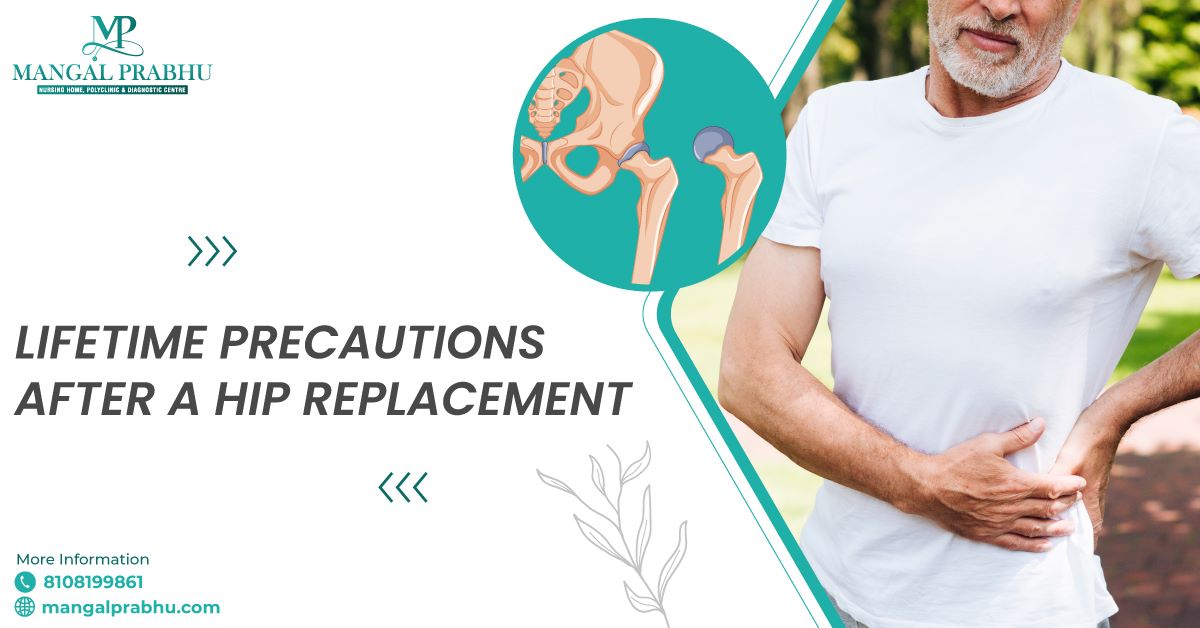
Lifetime Precautions After a Hip Replacement
Generally, seniors undergo hip replacement surgery to improve mobility and reduce pain. If you know someone undergoing this surgery, you must ensure they know the lifetime precautions. The Hip Replacement Surgeon in Navi Mumbai educates its patient about lifetime precautions after their procedure. Individuals can ensure a successful and long-lasting outcome by following these precautions and taking care of the new joint. In this blog, you can explore the essential lifetime precautions after a hip replacement.
Understanding the Lifetime of a Hip Implant
Before learning about the lifetime precaution, let’s learn about the lifetime of the hip implant. These implants can vary in material and design. The lifespan of hip implants depends on multiple factors, such as their type and the individual’s lifestyle. On average, most hip replacements continue to function well even after ten years, and many can last a lifetime. You must consult with the surgeon from Orthopedic Hospital in Navi Mumbai about the specific characteristics of the implant and its expected longevity to ensure appropriate care.
Precautions to follow after Hip Replacement Surgery
People with hip replacement surgery should follow these precautions from Mangal Prabhu Hospital, including:
1. Crossing Legs and Twisting Movements
Avoid crossing legs and twisting movements, including pivoting on one leg and walking pigeon-toed, should be avoided to minimize the risk of dislocation. Side sleepers may find sleeping with a pillow between their legs beneficial to maintain proper alignment. It’s important to be mindful of these movements and make conscious efforts to protect the hip joint.
2. Bending Too Far
Excessive hip flexion can lead to dislocation, so seniors should avoid bending the hip joint beyond 90 degrees. Activities like putting on socks or shoes should be done with caution. Choosing appropriate seating, like chairs with the thighs parallel to the floor, helps maintain the correct angle. Tall individuals may need elevated cushions for chairs or toilet seats to prevent over-bending.
Also Read: How To Sleep After ACL Surgery?
3. Repetitive, High-Impact Activities
While exercise is essential for maintaining muscle tone and balance, certain activities can strain the hip implant excessively. Repetitive motions and high-impact exercises like running and jumping should be avoided. Instead, low-impact exercises such as swimming, yoga, and stationary biking are recommended to restore range of motion without risking damage to the implant.
4. Air Travel Considerations
If the hip implant contains metal, it may set off metal detectors at airport security checkpoints. Informing the TSA agent about the presence of a metal hip implant is advisable. Full-body scanners are usually more effective at detecting internal metal. Still, even if the alarm sounds, it’s typically resolved with a physical pat-down or electromagnetic wand screening to ensure safety.
Conclusion
By following the lifetime precautions after a hip replacement, individuals can maintain the integrity of their new joint and enjoy a fulfilling life. Seniors should prioritize low-impact exercises and be aware of air travel considerations. Elderly people also avoid excessive bending and twisting. It will contribute to the long-term success of hip replacement surgery. Consult healthcare professionals at Mangal Prabhu Hospital for personalized advice throughout the journey. They will help you manage your pain and prevent complications.
